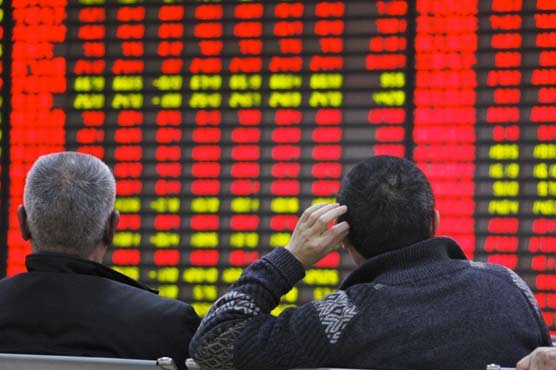Asia shares slip

The dollar drifted lower against the yen following a weak batch of corporate figures.
HONG KONG (AFP) - Asia's markets fell on Wednesday after a tumble on Wall Street, with investors in Japan tracking a central bank policy meeting later in the day.
The dollar drifted lower against the yen following a weak batch of corporate figures out of New York, while the greenback gained marginally against Thailand's baht a day after the country's army declared martial law,
Tokyo slipped 0.41 percent, Hong Kong lost 0.52 percent, Sydney shed 0.85 percent, Shanghai lost 0.34 percent and Seoul was 0.20 percent lower.
US shares took a dive on Tuesday in response to a barrage of mostly disappointing earnings from retailers, while downward pressure was increased after a Fed president called for interest rates to be hiked.
Reserve Bank of Philadelphia President Charles Plosser said borrowing costs may have to be lifted sooner than later. While most analysts expect an increase well into next year, the dearth of any other strong catalysts led traders to take their cash off the table.
Since the start of the year the US central bank has been reducing its stimulus programme, which helps keep rates subdued, as the economy shows signs of improving. Markets will get a better insight into its policy board's thinking when minutes from its most recent meeting are released later in the day.
The Dow sank 0.83 percent, the S&P 500 fell 0.65 percent and the Nasdaq 0.70 percent.
In Tokyo the Bank of Japan will tie up a two-day meeting on Wednesday and while it is expected to stand pat on monetary policy for now, the main focus will be on what governor Haruhiko Kuroda has to say afterwards.
On foreign exchange markets the dollar bought 101.27 yen against 101.32 yen in New York, while the euro fetched 138.77 yen and $1.3702 against 138.82 yen and $1.3701.
The baht dipped to 32.55 against the dollar from 32.52 a day after the Thai army's declaration of martial law that capped almost seven months of deadly anti-government street protests.
Before markets opened in Japan, the government released figures showing its trade deficit narrowed in April as a sales tax hike hit imports, while exports picked up pace.
The data also suggest the impact of a weak yen, which has caused the country's energy bill to soar, is starting to ease and come after its best economic growth in more than two years.
Oil prices rose. The US benchmark, West Texas Intermediate (WTI) for delivery in July, rose 48 cents to $102.81 in early Asian trading, while Brent North Sea crude for July rose three cents to $109.72.
Gold fetched $1,293.87 an ounce at 0210 GMT compared with $1,292.90 late Tuesday.


